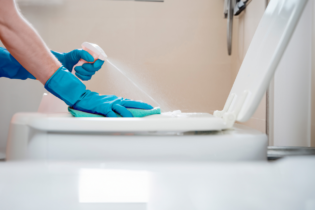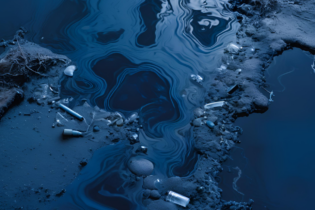The Deputy Minister of Water and Sanitation, David Mahlobo, has called for enhanced collaboration between government, the private sector and civil society and for technological innovation to be employed to help address sanitation-related challenges as experienced in parts of the country.
Deputy Minister Mahlobo was speaking during the annual commemoration of World Toilet Day on Tuesday, 19 November 2024 held at Radisson Blue Gautrain Hotel in Sandton, hosted by the Water Research Commission (WRC), in conjunction with South African Sanitation Technology Enterprise Programme (SASTEP). He noted that although there has been significant progress made to address the sanitation backlog and providing appropriate sanitation to poor households since 1994, much more work still has to be done to bring about more dignified sanitation services to communities. “Through the provision and the efforts of government and key stakeholders, the percentage of households with access to improved sanitation increased by 22,4 percentage points between 2002 and 2021, growing from 61,7% to 84,1%,” said Deputy Minister Mahlobo, while acknowledging that the most improvement was made in the Eastern Cape and Limpopo provinces.“Despite the notable work, we do admit as government that we need to keep our sleeves rolled up to ensure that all citizens of this country get to experience the pleasure of dignified sanitation facilities,” he added.Deputy Minister Mahlobo further called for the investment of sanitation infrastructure and technological improvements in order to address sanitation challenges. “We need significant investments in modern sanitation infrastructure and creative, forward-thinking solutions. Together, we can drive the change required to overcome the challenges in the sanitation sector,” said Deputy Minister Mahlobo. He further acknowledged the work that is being done by the Department’s entity, WRC, for its contribution made to initiate innovative projects geared towards finding alternative sanitation solutions.
Some of those innovations include the aptly termed, Next Generation Sanitation Technologies, which will not only address the basic human right to sanitation, but also align with Environmental, Social, and Governance (ESG) objectives.
As part of the Next Generation Sanitation Technologies, the reinvented toilets will offer significant advantages over traditional sanitation methods such as water-efficient and energy-neutral systems, which drastically reduce the environmental footprint of sanitation infrastructure. Additionally, the reinvented toilets will safely treat human waste without the need for conventional sewage systems, protecting communities from waterborne diseases and can be deployed in schools, clinics, and public spaces where sanitation infrastructure is often inadequate. Furthermore, adding to the technological innovations, the Department of Water and Sanitation has developed the National Faecal Sludge Management Strategy. The Strategy is aimed at providing guidance to the sector on safe management of faecal sludge to enhance operation and maintenance of on-site sanitation systems, prevent groundwater contamination, safeguard public health, and protect the environment from pollution throughout the sanitation service chain. Concluding his address, Deputy Minister Mahlobo reaffirmed the government’s commitment to eradicating the sanitation backlog and ensuring equitable access to dignified sanitation facilities. “Sanitation is more than a basic service; it is a human right. As we commemorate World Toilet Day, let us redouble our efforts to prioritise sanitation, protect our environment, and uphold the dignity of all citizens,” he emphasised. World Toilet Day is observed annually on 19 November and raises awareness on the global sanitation crisis and inspires action to address it. This year’s theme, “Toilet – A Place for Peace,” highlights the critical role of sanitation in fostering health, dignity, and sustainable development.






